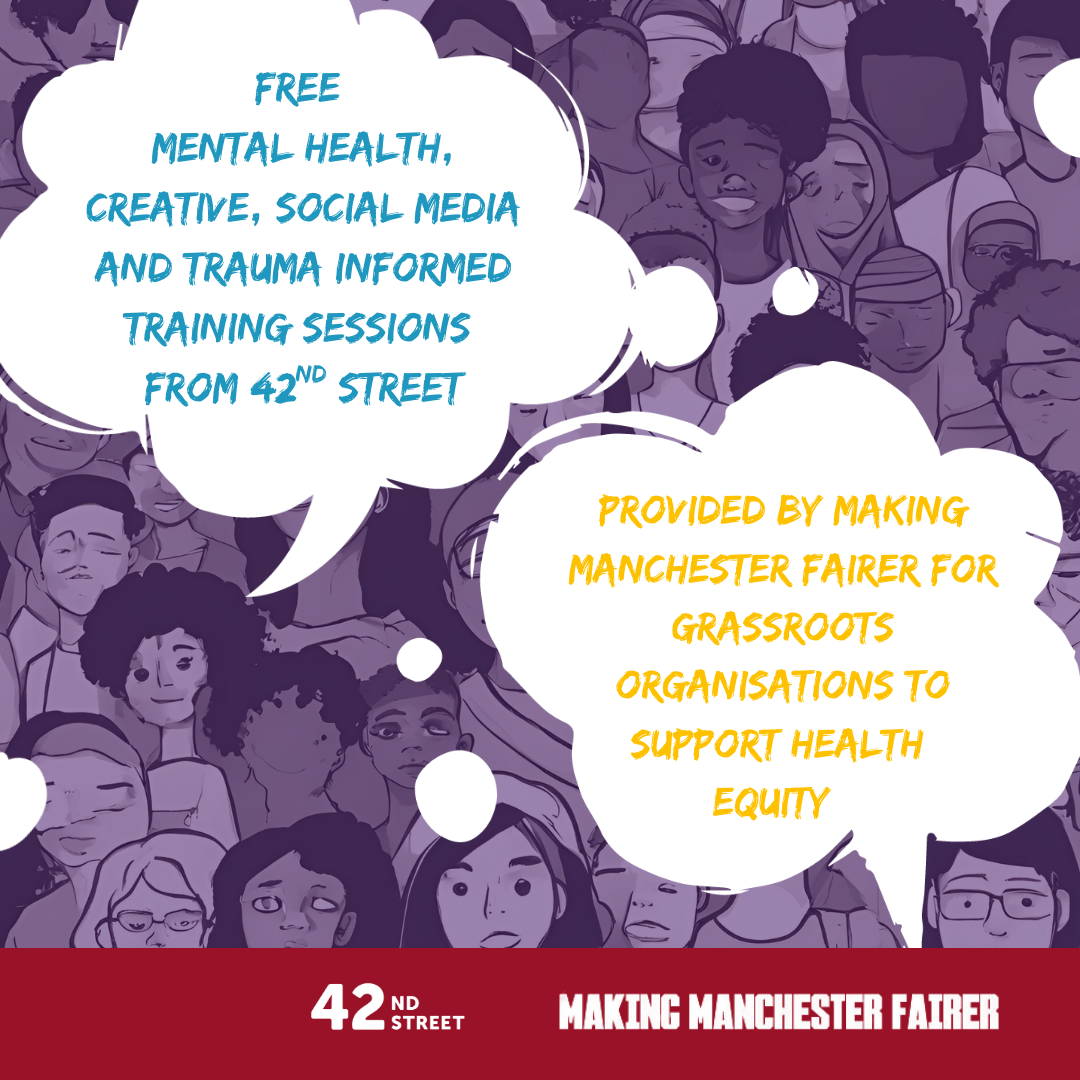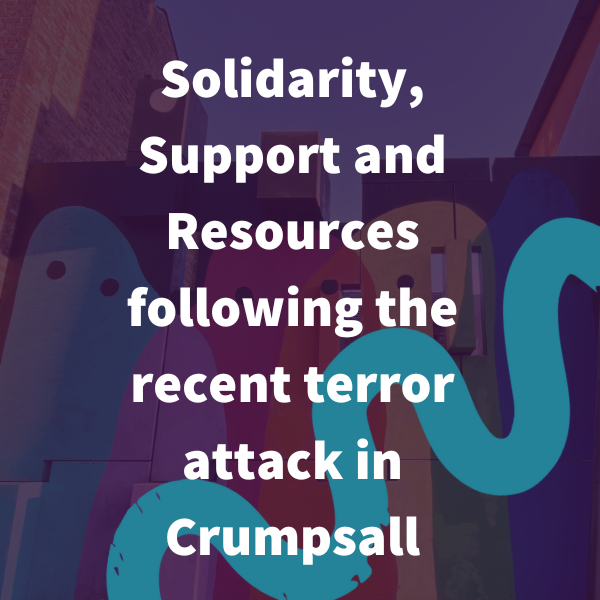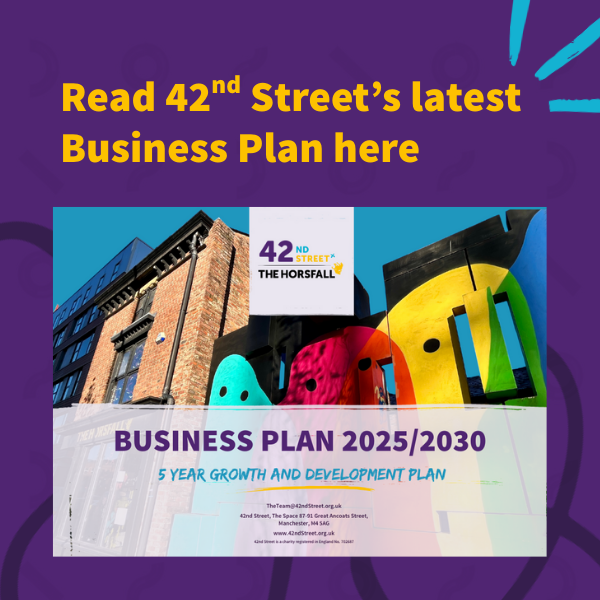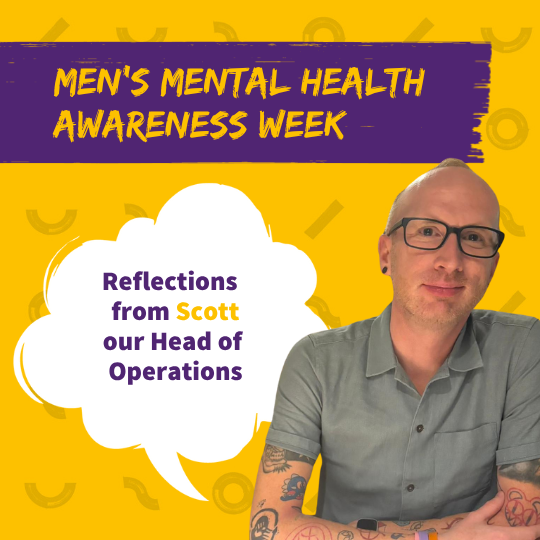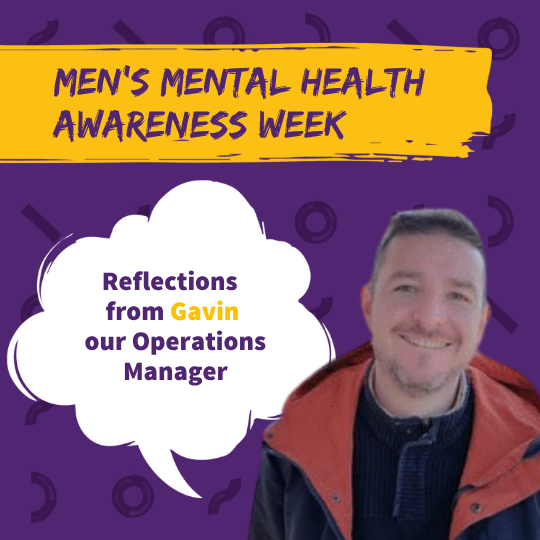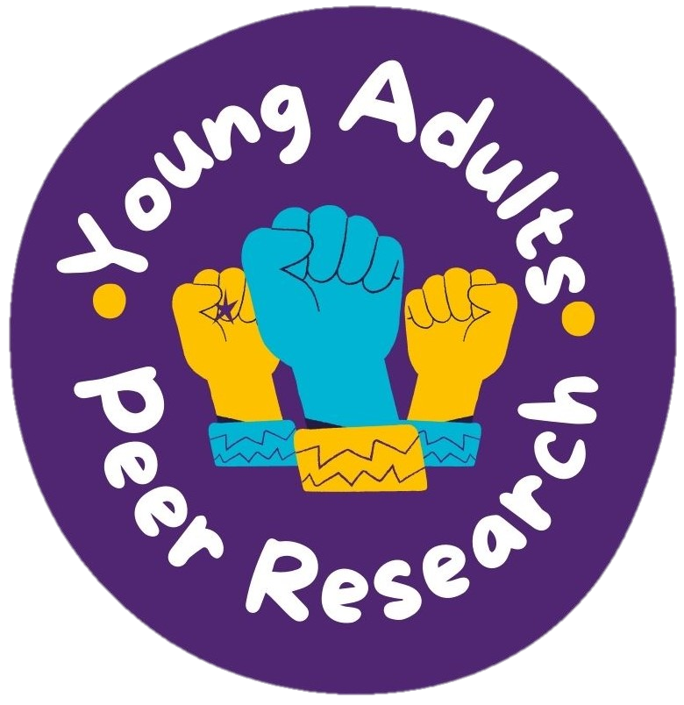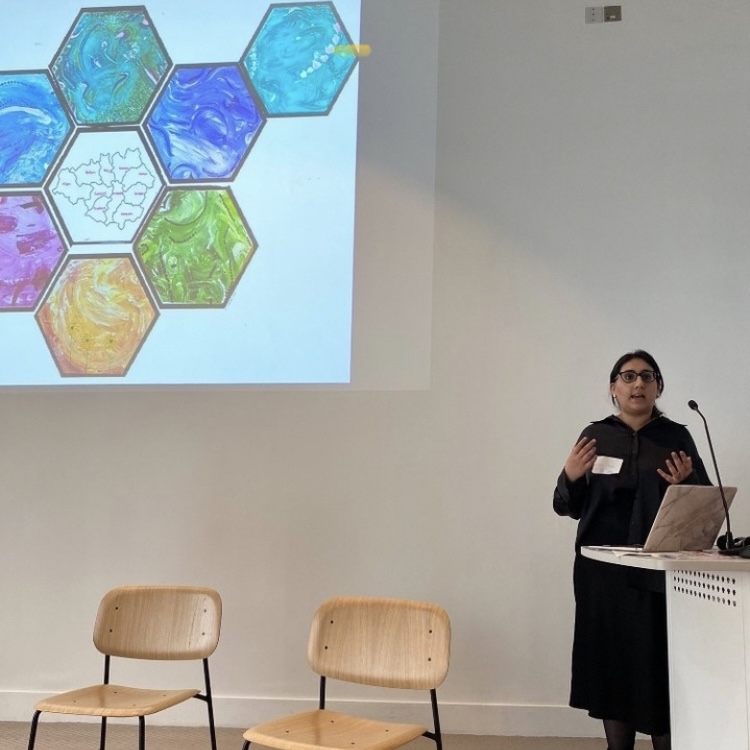Voices of Change: Peer-Led Research
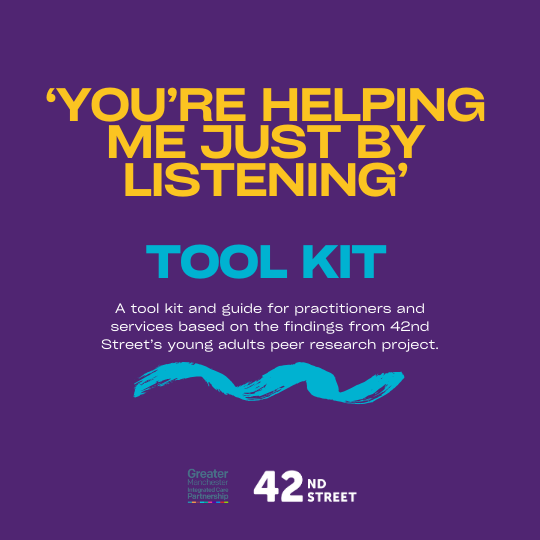
Voices of Change: Kenzye and Sofija's Peer-Led Report on Young Adults’ Experiences of Mental Health Services in Greater Manchester
Young Adult Peer Researchers Kenzye and Sofija, released their Peer Research report, “You’re helping me just by listening,” after speaking with over 150 young adults about their experiences with mental health services and advocating for change.
The extensive peer research initiative results from a partnership between Greater Manchester Integrated Care Partnership and 42nd Street, a youth mental health charity that recruited and trained two young peer researchers to conduct and co-lead the project. Every young adult deserves mental health support that is personalised, easily accessible, and free from stigma—but this is currently not the case. The project's goal is to highlight the voices of young adults in Greater Manchester navigating mental health services, identify the issues they face, and propose the necessary changes.
To achieve this, the project uses a Peer-Led Research approach rooted in the lived experience of young adults themselves.
“Peer Research is a participatory research method in which people with lived experience of the issues being studied are directly involved with conducting the research” (The Young Foundation, Peer Research in the UK). This method is shown to make participants feel more comfortable with the process and reach people whose voices may not have been previously heard, providing a much deeper, insider perspective.
Kenzye, reflecting on the process, stated:
“My experience and understanding of how it feels to be vulnerable and talk to a stranger about personal and traumatic things has enabled me to influence how this process looked for young adults. I wanted to make it a comfortable and rewarding experience for them.”
The trained peer researchers conducted focus groups, interviews, and surveys with young people from a range of backgrounds across Greater Manchester. These young adult peer-led conversations created a space for participants to openly discuss their experiences and personal journeys navigating mental health services—highlighting the barriers they face, what works, what doesn’t, and how services can improve to support them.
A culmination of these deeply personal insights, the report offers a unique, ground-up view of how mental health services are experienced and perceived by young adults. It reveals the understandable frustrations with the current system, as well as awareness of and empathy for the challenges that services face. The report also highlights simple requests that could make a huge difference, an eagerness to collaborate with services, and hope for more compassionate, young-adult, person-centred care.
Key Findings and Recommendations
The report highlights how services are stretched to their limits. Young adults face long waiting times (sometimes years long), a lack of communication while waiting, and insufficient follow-up care or information on alternative support available in the meantime.
One young adult shared:
“I’ve been on waiting lists for so long that by the time I get to see someone, my situation has changed.”
It’s clear that long waiting lists are a significant barrier to accessing support. We also know that early intervention is key in preventing longer-term mental health issues, and prolonged waits only exacerbate experiences of mental ill health.
Discussions with young adults also revealed that mental health services often lack agility and flexibility, struggling to meet the needs of individuals experiencing co-morbidities or homelessness. Moreover, there is insufficient cultural consideration to increase access for Global Majority people.
While the report calls attention to the need for systemic changes, it is also practical and solution-oriented, breaking recommendations into categories based on ease of implementation and required resources. These recommendations fall into five key areas:
- Waiting Times: Provide young people with accurate information about waiting times during initial assessments. Offer regular updates throughout the process and alternative psychosocial support to access while waiting. Services should consider additional peer group and drop-in support options to help young adults manage their mental health during delays. Psychoeducation and awareness of available services should also be delivered in schools and colleges.
- Support to Navigate Mental Health Services: Assign a point-of-contact staff member to guide young adults in finding the help they need. Fund and train young adults aged 18–25 for roles such as mental health champions to provide mentorship, advocacy, and practical support.
- Increase Practitioner Understanding of Young Adults' Needs: Offer updated training to mental health teams to improve their understanding of young adults' challenges. Involve individuals with lived experience in delivering training sessions that explore how to have better conversations about mental health with young adults.
- Involving Young Adults in Service Design: Establish participatory systems that train and include young adults in reviewing and designing mental health services. Develop entry-level mentor roles for young adults to offer peer support, along with full training to build skills for the role. Involve young adults in shaping funding priorities.
- The Little Things That Make a Big Difference: Read the report and its accompanying good practice toolkit, developed by young adult practitioners, to understand what young adults need and how they can be better supported. Work with organisations like Health Watch to assess how the toolkit is being implemented and its impact on services.
The report also champions positive stories, showing how progress can be made when young adults feel truly heard by professionals without judgment or rushing to solutions.
One participant shared:
“I felt like I mattered when the therapist actually listened to what I was going through, rather than just ticking boxes.”
The Toolkit: A Catalyst for Change
“What really came out of the research was the notion that young people’s voices are not being heard and that services have let them down time and time again,” the researchers explain.
“The peer researchers understood this and decided to create a Toolkit that would take the direct voices of young people from the research and the importance placed on trauma-informed practice and put this into an easy-to-digest training pack for workers across the sector. The toolkit reminds workers of the importance of ‘the little things’ that make a big impact and seeing these voices transformed into a practical, easy-to-read Toolkit that workers can use to inform and empower their support for young people is inspiring. It is only right that the voices shared in the research become more than just words on a report, but that they will be seen in service delivery through a Toolkit that amplifies the power and lasting impact the relationship with your worker has on a young person.” Amy, our Psychosocial Service Manager, reflects.
Hopes for the future
Young researchers Kenzye and Sofija hope that by amplifying the voices of young adults and sharing their findings alongside a practical Toolkit, they will inspire and support decision-makers, service providers, and mental health professionals to act.
Their vision is that Greater Manchester’s mental health services will evolve to better support the region's most vulnerable young adults and contribute to a healthier, more supported generation.
From the young adults, the message is clear: There is still hope, but meaningful change is needed—and that change begins with listening.






